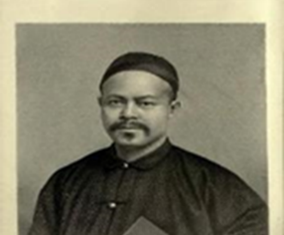In recent years, early American scholars have embraced the History of Medicine, using interdisciplinary approaches to uncover how colonists understood and treated illness. However, scholarship has primarily focused on epidemics affecting the body, leaving mental health largely unexplored.
This virtual lunchtime talk by Emily Gates is part of a larger project investigating how historical documents by medical practitioners and clergy construct a record of the evolving understanding of melancholia and relate to the literary works from the colonial and Early Republic eras. Therefore, in this presentation Emily will only focus on one type of melancholia, but in doing so, it will provide a thorough illustration of language used by the mentally ill to describe their condition, the understanding of melancholia by religious and medical authorities, and the surprising connection between real cases and the emergence of early American literature, which features predominately melancholic characters.
This virtual program is free. To secure a spot, click here to register now. You will receive an email confirmation with the Zoom link attached, and we will send you a reminder on the day of the program.
Questions? Contact Jennifer Busa, Public Programs and Special Events Coordinator, at jennifer_busa@chs.org.
About the Speaker
Emily “Em” Gates is a PhD candidate in Literary Studies at Georgia State University in Atlanta She is currently working to complete her dissertation linking high rates of melancholia in colonial New England to the emergence of predominantly melancholic characters in early American literature. Prior to this, she completed her undergraduate work at Berry College in Rome, GA before moving to Canterbury, England, where she graduated with her MA in English and American Literature from the University of Kent. Em is a burgeoning Early Americanist whose primary research interest is literature and medicine, especially the intersection of literature, trauma, and mental illness. She also loves multiethnic literature of the United States and southern literature. You can find her previous work in Litterae Mentis: A Journal of Literary Studies and Panoply: a literary zine.




